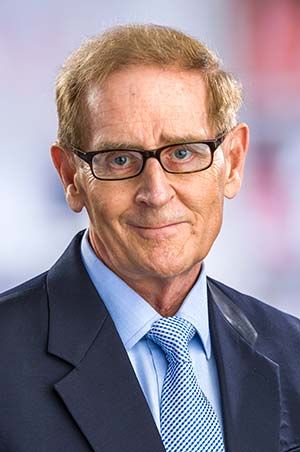- Bone Health
- Immunology
- Hematology
- Respiratory
- Dermatology
- Diabetes
- Gastroenterology
- Neurology
- Oncology
- Ophthalmology
- Rare Disease
- Rheumatology
Gary Lyman, MD, MPH, Explores the Progress With Oncology Biosimilars
Oncology biosimilars are broadly in use for good reason: They're absolutely vital for cost reduction and access, but efforts are needed to promote uptake of these agents, says Gary Lyman, MD, MPH, in this interview.
In a recent interview, Gary Lyman, MD, MPH, an oncologist and hematologist and public health researcher with the Hutchinson Institute for Cancer Outcomes Research, in Seattle, compares the uptake of biosimilars for cancer care and other conditions and provides insight on how uptake could be improved.
The interview was published in segments on AJMC.com, the website of The American Journal of Managed Care®, and The Center for Biosimilars®; descriptions of these segments and links to them are below.
Lyman discusses payer formularies and the profound effect they have on the drugs that providers employ. This also affects the use of biosimilars, he notes.
Lyman says biosimilar uptake in the oncology space is high because of the need for affordable treatment of cancer. Additionally, guidelines from the American Society for Clinical Oncology and the National Comprehensive Cancer Network strongly support the use of biosimilars in oncology.
Further, Lyman explains that filgrastim biosimilars have greater uptake than pegfilgrastim biosimilars probably because filgrastim biosimilars have been around longer and a lot of patients were given filgrastim biosimilars as an alternative to reference pegfilgrastim (Neulasta). Additionally, some patients are treated with less than the FDA-recommended dosing of filgrastim to save money, a strategy that has not been supported by clinical evidence. Lyman believes cost advantages and reimbursement, which may not be available for pegfilgrastim biosimilars, are big reasons why filgrastim biosimilars have seen such wide adoption in oncology.
Health care providers and institutions must be proactive in advocating for biosimilars, he says, advising that payers, providers, and health systems reach out to patients to indicate their perspectives on these agents. He also suggests there be a better alignment between what is encouraged by the clinical community and what payers are willing to cover.
The Pros and Cons of Interchangeability
He discusses interchangeability—the granting of the right to pharmacists to substitute biosimilars without consulting the physician—and the pushback on this issue. There is hesitancy to accept interchangeability of biosimilars, and physicians should have the right to keep a patient on an originator product if it’s working for them and switching could destabilize the patient’s condition, Lyman says. However, “no biosimilar has been removed from the marketplace” for failure to perform like its originator, he notes.
Lyman argues that the size of a health system or practice can affect whether reimbursement measures or incentives will influence biosimilar utilization. He adds that interchangeability designations hold the potential to help companies market their products and encourage wider use of their biosimilars. However, Lyman stresses that if a biosimilar receives an interchangeability designation and can be prescribed in place of a reference product at the pharmacy level, without the need for physician authorization, physicians should still be notified that a switch occurred, if for no other reason than pharmacovigilance.
Newsletter
Where clinical, regulatory, and economic perspectives converge—sign up for Center for Biosimilars® emails to get expert insights on emerging treatment paradigms, biosimilar policy, and real-world outcomes that shape patient care.

